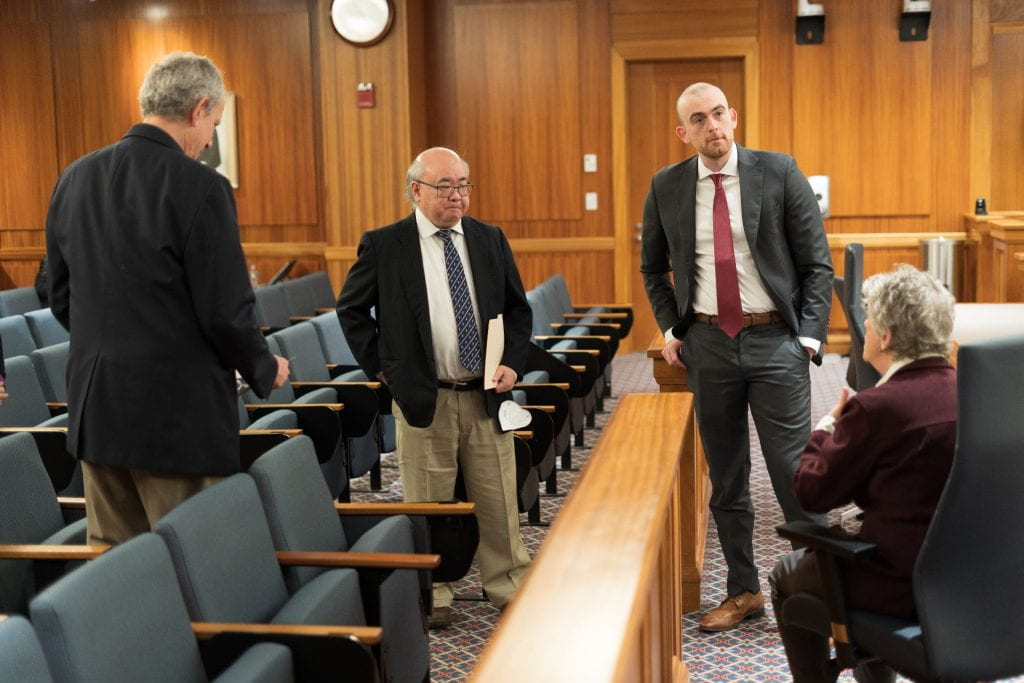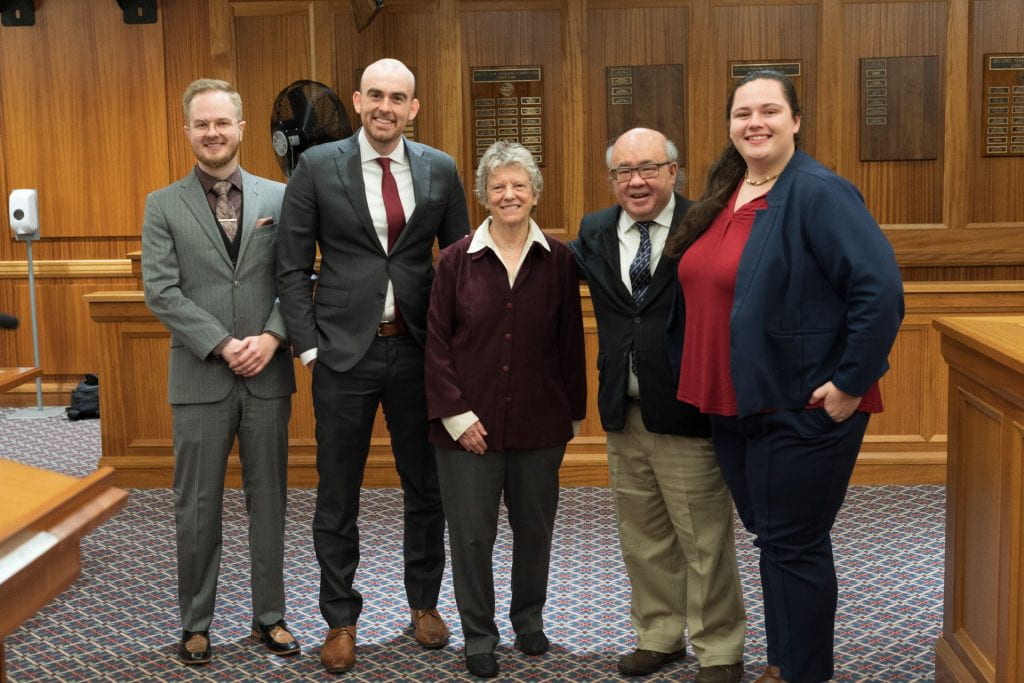The COVID-19 Pandemic: Occupational Safety and Health of Essential Workers in Massachusetts and Beyond
The Suffolk University Law Review welcomed Professor Emily Spieler as the featured speaker for the 129th Donahue Lecture. Professor Spieler is the Edwin Hadley Professor of Law at Northeastern University School of Law, specializing in employment law with a particular emphasis on workplace safety and workers’ injuries. She detailed the failures—both at the federal and state levels—to protect workers during the COVID-19 pandemic, noting the disproportionate impacts across class and race, whereby low-wage jobs with greater numbers of BIPOC workers did not have the same remote-work options afforded to higher-wage jobs with proportionately less BIPOC representation.
On the federal side, Professor Spieler pointed out how, despite OSHA’s seemingly robust rule-promulgation capabilities, bureaucracy has historically prevented the efficient exercising of this capability, and the lack of an existing airborne-pathogen rule applicable to many of the hardest-hit industries left essential workers unsupported. She further discussed the obstacles to enforcing OSHA health hazard orders under the “general duty” clause and how the high bar for judicial approval of an order—combined with a lack of funding that made it impracticable to inspect companies across the nation all at once—functionally defanged OSHA at a critical juncture. Professor Spieler then chronicled the attempts of the Biden administration to implement emergency standards through OSHA, which ultimately either expired or were met with challenges that led to the Supreme Court’s controversial decision halting implementation.
Having exposed the flawed federal response, Professor Spieler moved on to survey the varied state responses, praising states like California that used existing infectious disease rules to efficiently promulgate and enforce specific emergency standards for COVID-19. She contrasted this optimal framework to states like Massachusetts, which may have had the legal power to respond beyond the limited OSHA and CDC guidelines but lacked the infrastructure to implement such a response quickly or effectively.
Professor Spieler concluded by describing the International Labor Organization’s broad conventions for worker safety as a model for both federal and state policy, noting the wide variation between protective states like California and states like Arizona that rejected even the minimal OSHA emergency standards. She encouraged states to live up to their responsibilities to protect workers, especially in states like Massachusetts that at least have the legal capacity to do so, learning from the mistakes made during this pandemic to prepare for future pandemics.
Recording:
Watch the full lecture [here].
Photos:




